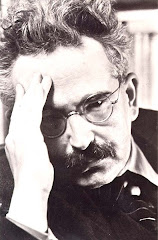Isn’t it telling that life was created with a sigh? God heaved an anxious breath, a heavy sigh, and lo and behold, earth’s nostrils were infused with the spirit of life. But what is a sigh, and what is its source? Why, after all, did God sigh in the first place? To answer this question we must first note that not all speech-acts require speech. Sometimes an inflected breath, a fleshy silence, is just as potent as any “Let there be light” or “I do.” Sighing is not simply a descriptive event; it is a colossally creative activity. Sighing finds its expression in a sudden awakening to the presence of a void. But to sigh is not simply to acknowledge that void, to bow in deference to it, and humble oneself before the incompleteness that it poses. To sigh is, in the very moment that one pays tribute to the nothing, to fill it with a cathartic gust of energy and an explosive power of desire, and thus deprive it of its very nothingness. In the beginning, when the world was not-yet a world, but a mere disunity, a nether-clump of dark and deep, a heap of indistinguishables, a pre-stage of unordered non-beings, there was much for the Divine, who was himself not-yet anything but the nothing, to sigh over. And so, it is perhaps not so extraordinary that the First Principle, the Nothing on which all turtles ad infinitum stand, sighed, and in so sighing, became the Creator of the Universe.
This sigh is a never-ending one. It can still be felt blowing the universe beyond its outskirts, casting off nowness and thisness into diaspora, and generating new horizons of possibilities. This infinite sigh, the sigh of the nothing which is the life-force of the cosmos, however, is not only a creative and productive sigh. It is also a deracinating and catastrophic ge(i)sture. It is the very sigh, which Walter Benjamin identified in his ninth thesis on the philosophy of history as the storm blowing from paradise. It is the very sigh in which the Angel of History’s wings are caught and by which he is prevented from awakening the dead. This sigh, Benjamin tells us, we call progress. And perhaps we are right to call it so. But this sigh is, even if progressive, quite violent. This sigh tore life out of Adam’s rib and blasted humanity out of Eden. And what was the weapon Cain used to kill his brother Abel, if not the sigh, the bitter and enigmatic sigh which constitutes the textual oblivion in the verse “And Cain said to his brother Abel…and when they were in the field, Cain set upon his brother Abel and killed him?”[1] It was God’s sigh of regret at having created the world, which stirred the clouds to pour down rain for forty days and nights.
For, you see, the sigh, which always originates in the face-to-face encounter with the nothing, must continue to heave, since the moment that it brings the not-yet to the here, a new not-yet arises, and the nothing reasserts its omnipotence. The world is caught in the exasperating destruction of the sigh which is ever fighting to renew what is always dying. The sigh, and its counterpart, which is really not its antithesis, but its mother, the nothing, cannot be separated into neat opposing categories such as “good” and “evil” or “true” and “false.” For the sigh, and the nothing which it fills, are of one seem. If the nothing ceased to nothing, the sigh would cease to sigh. And if the sigh ceased to sigh, the nothing would become but nothing and cease to be the nothing. Thus the war that rips our souls apart in cosmic battle is not a contest between God and the Devil, as Dostoevsky would say, but rather the unsettling embrace of exhalation and inhalation, an embrace which is in one fell swoop a kiss of death and a kiss of life.
It is for this reason that the sages teach that we possess neither a good nor an evil urge, but only the empty urge itself. For no urge is unqualifiedly good or evil. And perhaps no urge is purely good or evil. The urge is, after all, the sigh. But the sigh is always an ambivalent matter, which is why the last sigh will be a sigh of relief. When the Messiah comes, his sigh will be a sigh to end all sighs.






No comments:
Post a Comment